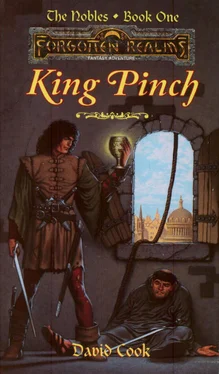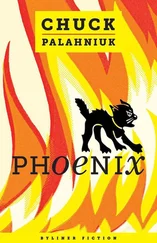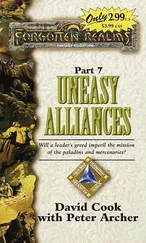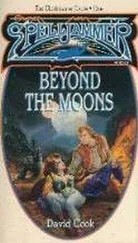David Cook - King Pinch
Здесь есть возможность читать онлайн «David Cook - King Pinch» весь текст электронной книги совершенно бесплатно (целиком полную версию без сокращений). В некоторых случаях можно слушать аудио, скачать через торрент в формате fb2 и присутствует краткое содержание. Жанр: Фэнтези, на английском языке. Описание произведения, (предисловие) а так же отзывы посетителей доступны на портале библиотеки ЛибКат.
- Название:King Pinch
- Автор:
- Жанр:
- Год:неизвестен
- ISBN:нет данных
- Рейтинг книги:5 / 5. Голосов: 1
-
Избранное:Добавить в избранное
- Отзывы:
-
Ваша оценка:
- 100
- 1
- 2
- 3
- 4
- 5
King Pinch: краткое содержание, описание и аннотация
Предлагаем к чтению аннотацию, описание, краткое содержание или предисловие (зависит от того, что написал сам автор книги «King Pinch»). Если вы не нашли необходимую информацию о книге — напишите в комментариях, мы постараемся отыскать её.
King Pinch — читать онлайн бесплатно полную книгу (весь текст) целиком
Ниже представлен текст книги, разбитый по страницам. Система сохранения места последней прочитанной страницы, позволяет с удобством читать онлайн бесплатно книгу «King Pinch», без необходимости каждый раз заново искать на чём Вы остановились. Поставьте закладку, и сможете в любой момент перейти на страницу, на которой закончили чтение.
Интервал:
Закладка:
David Cook
King Pinch
Prologue
In a far southern land, ten thousand people gathered in the afternoon haze, a miasma that started at noon along the shores of the Lake of Steam. From there it swelled through the streets of Ankhapur and cloaked the city in a moist cloud until sweat and air became one. No breezes fluttered the white banners on the rooftops. Not even the collective breaths of all those gathered could swirl the clotted air. Cotton plastered to flesh like a second skin, so that clothes hung limply on people's bodies. Ten thousand people stood waiting in the clothes of the dead and the lifeless.
These ten thousand-the grandfathers, fathers, and sons of Ankhapur; the grandmothers, mothers, and daughters of the same-squeezed against the sides of the narrow streets, overflowed the balconies, and squatted in jumbles on stairs that coiled out of sight.
They lined a single winding avenue, choked the streets that led to it, even crammed their boats along the quay where the avenue passed. At the edges of this mass were the kebab vendors with their sizzling meats, the wine boys who siphoned draughts from the kegs strapped to their backs, the fruit sellers pushing overripe wares, the gamblers who cunningly lost in order to win, and the ladies who profited from any crowd.
A traveler, caught in the edges of the thronged multitude, would at first assume he had stumbled upon a festival unknown in his far-off homeland. Perhaps the hordes waited for the devout pilgrimage of a revered saint. Maybe it was the triumphal entry of a conquering lord, or, most wonderful of all, the perambulation of a revealed god before the very eyes of his worshipers. That truly would be a story for the traveler to tell upon his return to some distant home.
As he pushed his way farther in, though, the traveler would begin to have doubts. Where were the lanterns, the bright streamers, the children's toys he was accustomed to at every festival in his home? Was this the passing of a particularly dour saint, a victory too costly for the citizens to bear, or, worse still, the march of some vengeful death god whose gaze might strike down some unfortunate? There was no cheer or eager expectation in those around him, and as he plunged farther into the crowd, he would find only ever-increasingly somber face of duteous sorrow.
Upon finally reaching the center of this dour crowd, the traveler would be greeted by masses of red bunting, great swathes of the brilliant cloth hanging listlessly from the balustrades and lampposts that magically light Ankhapur's nighttime streets. Were this the traveler's fledgling journey, he might be mystified by the colorful riot that hung over his head. His journey had brought him, perhaps, to a city of the mad-lunatics who lived out their lives as the inverse of all normal reason-melancholy in their joy, merry when others called for sorrow. Shaking his head, he would quickly resolve to leave Ankhapur, perhaps noting its dementia in the notebooks of his travels.
This would not be the conclusion of a traveler more steeped in the whirling customs of different lands. He would look at the scarlet bunting and know that the language his own culture saw in them was not the language of Ankhapur. Before him was stretched a funereal display, just as black or white might symbolize the same in his land.
If he were truly cunning, he would guess the nature of the departed. No crowds throng for the passing of a mage. The deaths of wizards are intimate and mysterious. Nor was it the passing of some once-beloved priest, for then surely the people would congregate at the clergyman's temple to hear the dirges his followers would sing. The passing of thieves and rogues no one mourned.
It could only be the death of a lord, and one great and powerful at that. Nothing less than the mortality of kings could draw the people into the humid afternoon, out to stand in the sun until the processional passed. Looking at the citizens with renewed insight, the traveler would see an old courtier in despair, his almost-realized expectations dashed. A young maiden shivers with tears, overcome by the memory of some forgotten kindness His Highness had bestowed on her. A one-eyed cripple, dismissed from the guard after his injuries in the last campaign, struggles to stand in the stiff posture of old duty. Farther up, a merchant leans out the window, his face a mask of barely disguised glee as he already counts the profits he will reap now that the oppressive lord is gone.
As the traveler studies his neighbors, the procession finally arrives. The honor guard broils under its plumes and furs as it clears the streets. Behind follow the priests of all the temples, the aged patriarchs carried in shaded sedan chairs while their acolytes swing censers and drone their prayers to the skies. Finally there comes a great gilded cart, draped in a pyramidal mound of red silk and pulled by three ranks of sacrificial oxen, the first rank the deepest black, the second a hitch of unblemished white, and the third all perfect gray. As the ox cart creaks and lumbers through the cobbled streets, all eyes strain to see the throne that sits at the top. There, dressed in the robes and furs of state, immune to their crush and heat, is their late king. Only his face shows, chalky gray and hollowed by the final touch of death.
A breath, held by ten thousand souls, is released as the cart passes each man, woman, and child of Ankhapur. The king is truly dead. The people begin to move once more, each citizen taking up again his course among the living. As the traveler passes through the crowd, a hand with a knife stealthily reaches for the strings of his purse.
Years later, when the traveler speaks of Ankhapur, he will tell of the funeral of the king of a land of rogues.
1
"Crap! This wind stings like Ilmater's wounds!" a thin voice loudly groused from the darkness of night.
"Quiet, you little fool!" hissed a second, deeper voice close by the first. "You'll tip us for sure with your whining."
"Fine then. You work these knots with your fat human fingers," the other voice hissed back. His words were almost lost in a roaring gust. There was the furious snap of long cloaks lashing the air.
"Just work, damn you, before we both freeze." The words were accented by the chink of metal grating against tile.
A flash of light swept across the pair.
"Down!" hissed the deeper voice. The light briefly illuminated two people-one large, the other absurdly small-perched on a precarious cant of rippled roof tile.
The larger of the two was leaning heavily on a bar wedged in a crack between the terra-cotta shapes. The smaller one fumbled with a stout cord, knotting the end around a glazed chimney.
"Relax. Just a lamplighter," the little one said. An icy gust rocked them, swirling their cloaks into fierce snarls.
Wind was a property of the winter-stung nights in Elturel. Each night it rose up with the fading sun to sweep through the hillside streets of the city's High District. On a gentle night it was a dog's whimper, patiently waiting to be let in through every opened door and window. But there were other nights, like tonight, when it snarled like a ravaging hound. The hunter's wind, people called it then, and shuddered when they heard the noise as it bayed through the streets. Everyone knew the calls were the hounds of Mask, and no wise man went out when the unshriven dead called to him from the street.
At least not the honest ones.
Poised on the high, tiled rooftop, the two shapes- large and tiny-continued their work. A chill blast shivered over them and they unconsciously shifted on their roost until their backs were carefully turned to the numbing blasts. Never once did they break their attention from the glazed tiles beneath them.
Читать дальшеИнтервал:
Закладка:
Похожие книги на «King Pinch»
Представляем Вашему вниманию похожие книги на «King Pinch» списком для выбора. Мы отобрали схожую по названию и смыслу литературу в надежде предоставить читателям больше вариантов отыскать новые, интересные, ещё непрочитанные произведения.
Обсуждение, отзывы о книге «King Pinch» и просто собственные мнения читателей. Оставьте ваши комментарии, напишите, что Вы думаете о произведении, его смысле или главных героях. Укажите что конкретно понравилось, а что нет, и почему Вы так считаете.












